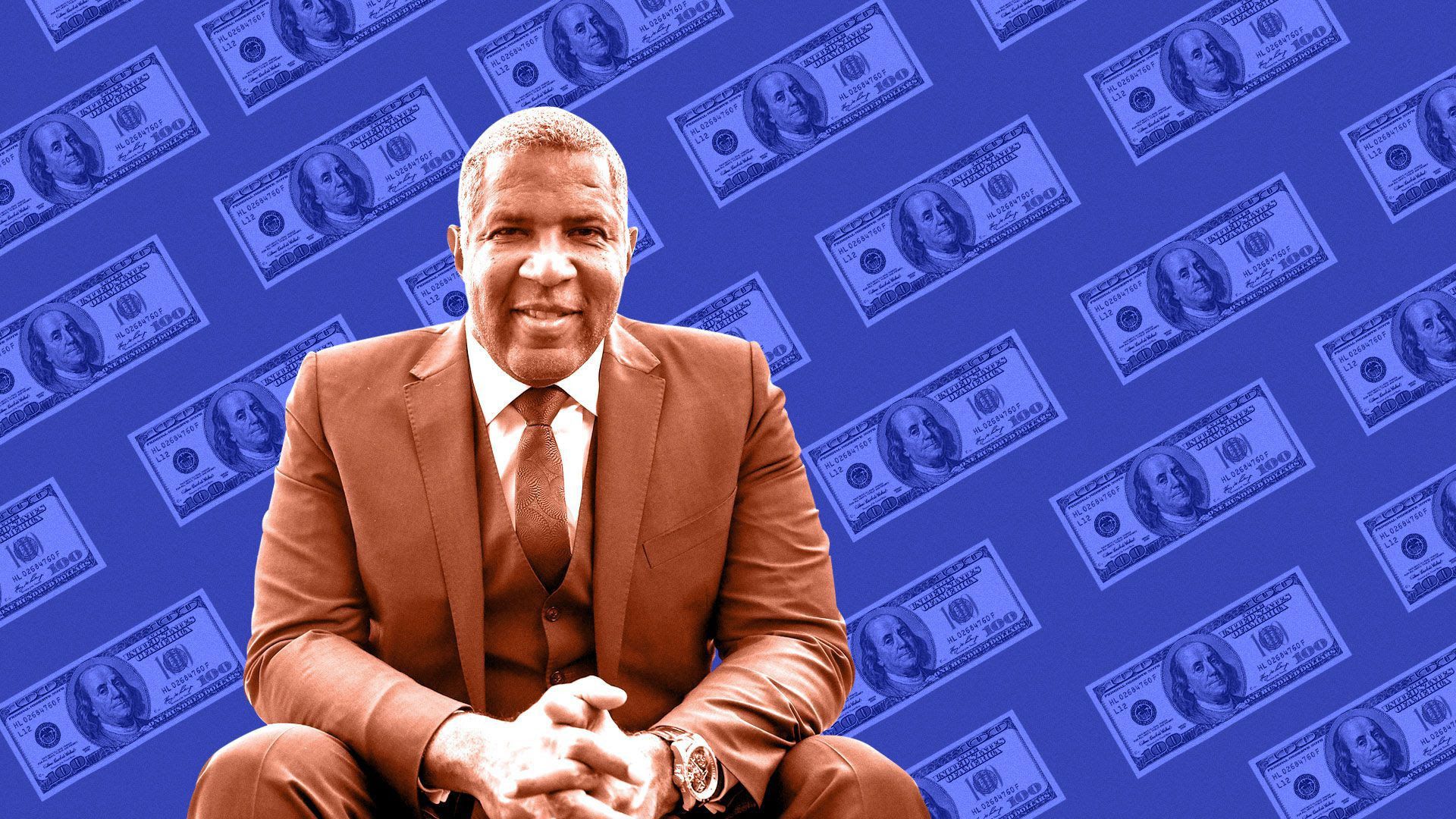Robert Smith's image rehab
Add Axios as your preferred source to
see more of our stories on Google.

Illustration: Eniola Odetunde/Axios
Robert Smith on Wednesday made his first public appearance since copping to tax fraud, and agreeing to pay $140 million in back taxes and penalties, appearing on a "Race and Corporate America" panel at the New York Times DealBook Summit.
Why it matters: Smith didn't just get a pass, he got image rehab from his fellow panelists.
The private equity titan's legal situation didn't come up until the 52-minute mark of the hourlong conversation, when he was asked by moderator Andrew Ross Sorkin about lessons learned.
- Smith, who remains legally precluded from directly discussing settlement terms, replied: "A big part of life is that if you make mistakes, you have to in some way clarify them, clear them up and get beyond them.... I can learn from my mistakes and I have. In order to focus on the problems of the present I need to resolve the issues of the past, and the settlement offered me the opportunity to do that."
Yes, but: Sorkin didn't really get a chance to ask a follow-up. Instead, rapper and activist Killer Mike interjected with a full-throated defense of Smith:
- "People make mistakes.... Never forget that this country was founded by people who didn't want to pay taxes to a crown. Let us never forget that our forefathers ... were slaveowners.
- "Let us never forget the sins of our past because when you do, you start to judge people as if your moral authority is higher. As hard as it may be to forgive a rich guy, he did what he did at Morehouse before that.
- "What he did for Morehouse wasn't, 'Let me clean my image back up.' It was his honest and true heart. So I just want to tell Black people: Defend him vigorously."
The big picture: Some of the historical stuff was strange. Is he arguing that Smith's tax evasion was a political statement, in line with "no taxation without representation?"
- Is he further arguing that we forgive the moral abomination of slavery because America's Founding Fathers also had virtues? Or was this just reflexive defense of a philanthropist and successful Black businessman, in the context of a panel on race and Corporate America?
Between the lines: Beyond that, Killer Mike was wrong on his timeline. Robert Smith's decision to pay off $40 million in student debt for around 400 Morehouse graduates last year, while noble, was not before he was in trouble with the government. It was before he settled, yes, but he was well aware of the investigation and had been trying to negotiate his way out of it.
- Moreover, Smith's tax avoidance deprived the federal government of funds that could have been used to fund programs for which Killer Mike advocates.
- It's also worth noting that former Xerox CEO Ursula Burns also offered a forgive-and-forget defense of Smith, although she acknowledged having not read about his tax troubles.
The bottom line: Leave aside what Smith's fellow panelists said about him. Watch the video. He could have interrupted, reiterating his culpability and explaining that he doesn't deserve a mulligan. But he didn't. He smiled and nodded along as his reputation was laundered.
